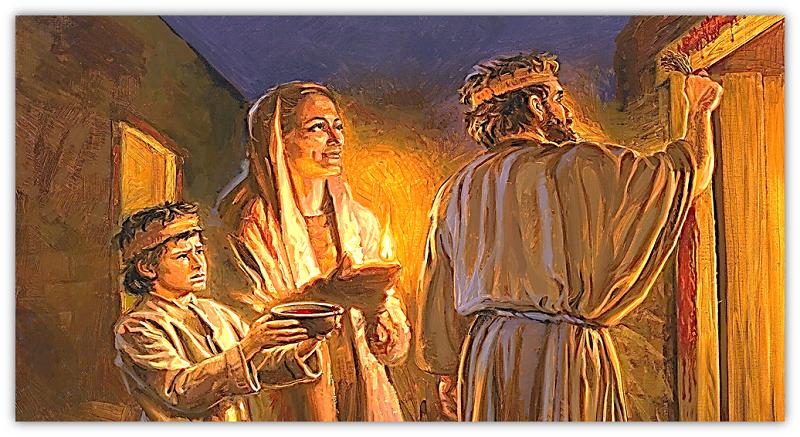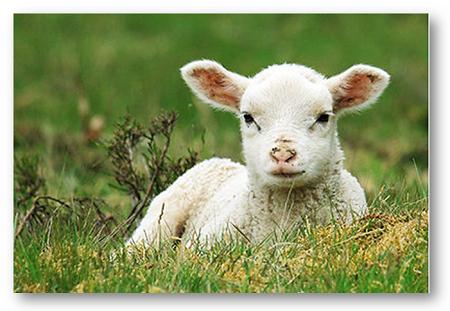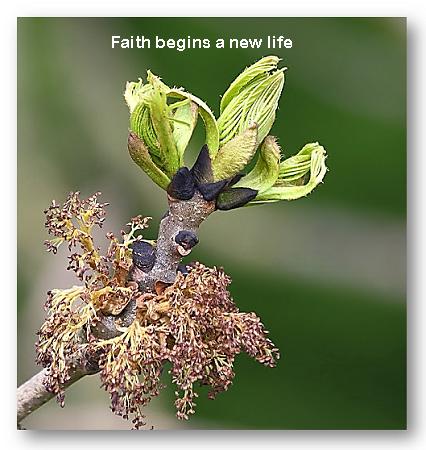Lessons from Passover
Lessons from Passover
Read Exodus 12

It would be hard to find a major topic of theology that does not find expression in the book of Exodus. Many of the themes that God progressively revealed in Scripture begin in this book. Unquestionably, the greatest single event in Old Testament history was the Exodus from Egypt. It was a supreme demonstration of God’s grace, faithfulness, and power. It was the paradigm for every other deliverance, whether national or spiritual.
Allusions to the Exodus occur in every major section of the Old Testament, and the New Testament refers to it repeatedly as well. When Moses and Elijah appeared on the Mount of Transfiguration to discuss with Jesus His approaching death, Luke deliberately used the Greek word “exodus” to designate that death. Christ called His death the New Covenant sealed by His blood, just like the Passover sacrifice. When the Song of the Redeemed sounds in heaven, it is the song of Moses and the Lamb. In addition, the New Testament has over thirty explicit references to this epoch event, and over twenty occur in the Passion narratives. If that were not sufficient to confirm the link to the Lord Jesus, Paul explicitly declared, “Christ our passover is sacrificed for us” (1 Cor. 5:7). The Passover is more than history; its message is the everlasting gospel. It has lessons for sinners still in sin’s bondage and in jeopardy of the sentence of death, and lessons for saints whose memories need to be stirred to think on the grace that rescued them from bondage and death to liberty and life. Three principal lessons stand out from the first Passover.
A Lesson in Sovereign Grace⤒🔗
On that fateful night in Egypt, some were going to die and some were going to live. The death sentence was on all the firstborn in the land of Egypt (11:5), but the Lord “put a difference between the Egyptians and Israel” (11:7). The question is, why? Israel was certainly not delivered because of their righteousness. The Scripture is clear that they were guilty of the same sin and idolatry as the Egyptians (Josh. 24:14; Ezek. 23:8, 19). They were not delivered because of their afflictions nor because of any inherit worth or potential for they deserved their bondage and they had no merit. Israel’s bondage pictures the spiritual bondage of every individual, born in sin, held under sin’s dominion and power, incapable of freeing self. Later, Moses explained directly that God loved them because He loved them (Deut. 7:7, 8). The reason God spared the firstborn in Israel was found within Himself. The first Passover and every following celebration of it was a reminder of grace. It is a reminder to every believer that the only reason he will not die the death of the wicked is because of grace.
A Lesson in Substitutionary Atonement←⤒🔗
The Exodus teaches that grace, notwithstanding its sovereignty, demands atonement; redemption requires a price (1 Peter 1:18, 19). The Passover lamb was a vivid picture-prophecy that points directly and unquestionably to the sacrifice of Jesus Christ. Christ fulfilled the prophecy, but the lessons about atonement remain.
The lamb was an obvious substitute. The sentence was clear; all the firstborn were doomed to death (12:12). Normally, being the firstborn was a position of honor, but not that night. On that night, the firstborn would live only if the substitute died. It had to be the death of the firstborn or the death of the lamb – one or the other. If anyone could ever understand the grace of substitution, the firstborn in Israel could. The Passover lamb provided a vivid demonstration that the basis of life was outside of oneself in the death of another. The Passover declares a fundamental truth of the gospel that Jesus died in behalf of and in the place of those He represented, His people.

The lamb was a perfect substitute. Any imperfections in the lamb disqualified it from being the substitute (12:5-6). The value of the death was linked directly to the value of the life, a truth that finds its ultimate reality in Christ. As the Passover lamb was selected from the flock (12:3), so Christ was the elect or chosen substitute for His people (Isa. 42:1). The eternal Son was set apart to be the only Redeemer of God’s elect. As the lamb had to be without defect (12:5), so Christ was the Lamb without spot or blemish (1 Peter 1:19); He was impeccably pure. As the Passover lamb was isolated from the tenth day to the fourteenth day (12:3, 6) to assure of its perfection, so Christ was under scrutiny from His birth until His death. He lived under the law, in view of the world and before the Lord, demonstrating over and again that He was indeed holy and undefiled. His perfect living qualified Him as the perfect substitute to pay for the sins of His people.
The lamb was the slain substitute. The Passover lamb pictured the necessity of death and shedding of blood as essential to atonement (12:6-7). Death was the execution of justice (12:12). Death is the earned end of sin; it is the debt that must be paid. Many in Egypt paid their own debt and received their earned wages, but many others lived by virtue of the death of the substitute. Justice demands the penalty, and the penalty for sin will be paid either in Christ or out of Christ. But one way or the other, it will be paid.
The shedding of blood was the effective cause of deliverance (12:7). The Passover demonstrated graphically that without the shedding of blood there is no remission of sin (Heb. 9:22). It was not the corpse or the hide of the lamb that diverted judgment; it was the blood. Death was necessary for the satisfaction of justice; blood was necessary for the satisfaction of divine wrath. One without the other is no atonement. So it is that the sacrificial death of Christ and His precious blood appease the wrath of the rightly angry God, quench the fire of judgment, and wash away the guilty stain.
The lamb was a successful substitute (12:13, 23, 27). The sacrifice worked; there was death everywhere except where the blood was applied. The blood was the protective covering between God’s people and the curse. The presence of the blood caused the Lord to pass over (to leap over) and blocked the plague of destruction from entering. As every blood-covered house was spared, so everyone covered with the blood of Christ is safe and secure. There will never be a soul in hell that has been saved by the blood of Jesus Christ. That’s the gospel, and it works every time.
A Lesson in Saving Faith←⤒🔗
Faith places trust in the blood. There was plenty of bloodshed in Egypt that night, but only where the blood was applied was there life. The blood made the difference. Faith appropriates its benefits and rests in its power. The Passover underscores the objectivity of faith: The object of faith determines its value. Most likely, there were some firstborn in blood-covered houses that suffered a restless night wondering if the blood would really work. And there were most likely those that slept well in peace and confidence. The point is that both survived the night; the Lord passed over both houses and the plague entered neither. Assurance or lack thereof did not affect the outcome. Salvation depended on the Lord seeing the blood, not on how well they remembered seeing it. The Lord said, “when I see the blood, I will pass over you” (12:13). Whether the faith was strong or faltering, it was of equal value because it rested on the blood. It is not the degree or fervency of faith that saves; it is the object of faith that saves. Saving faith saves because it receives and rests on Christ as He is freely offered in the gospel. The more we grasp that salvation rests on what Christ has done, the more we can come into the blessedness of assurance realizing it doesn’t depend on us.
Faith finds sustenance in the lamb (12:8-10). The slain lamb became food. Eating was a symbol of peace and fellowship, but it was also an act of nourishment. By eating they assimilated the lamb to themselves. What the Passover lamb was to the body, so feasting on Christ is to the soul (John 6:48–56). By feasting on Christ, we receive nourishment and strength for living. Feasting on Christ should not be a one-time meal; the more the better.

Faith begins a new life. The Passover was the “beginning of months ... the first month of the year” (12:2). The Passover marked the birthday of the nation, the beginning of a journey that put Egypt behind them and the Promised Land ahead. So faith in Christ is not the end; it is the beginning of a new life. Faith takes the believer on a journey. Faith in Christ marks a new life with the world and sin behind and eternal glory ahead. Old things are passed away and all things have become new.
So let us remember that “Christ our Passover is sacrificed for us” and “let us keep the feast” (not in fact but in faith in what it teaches) in “sincerity and truth” (1 Cor. 5:7-8).

Add new comment